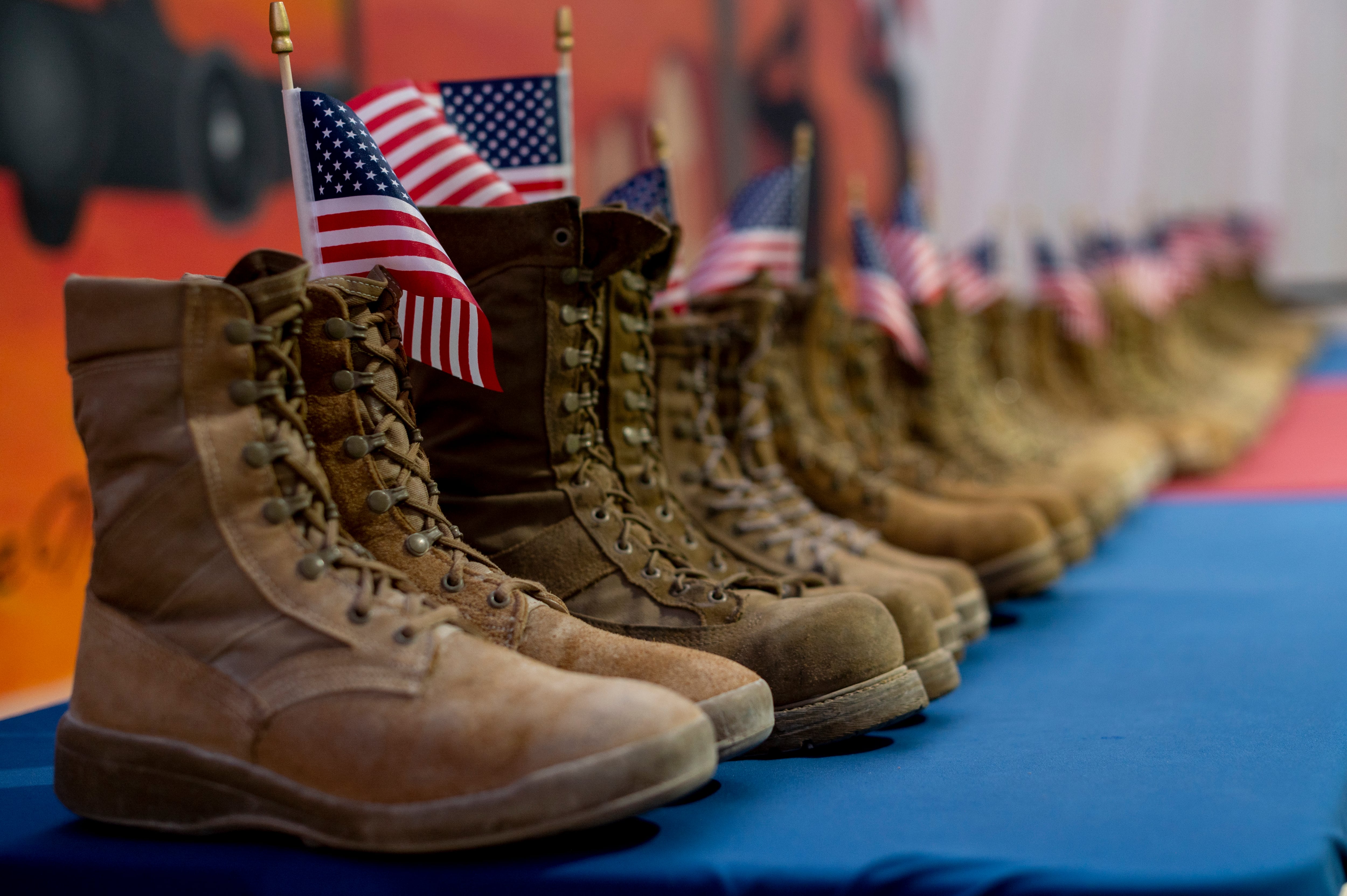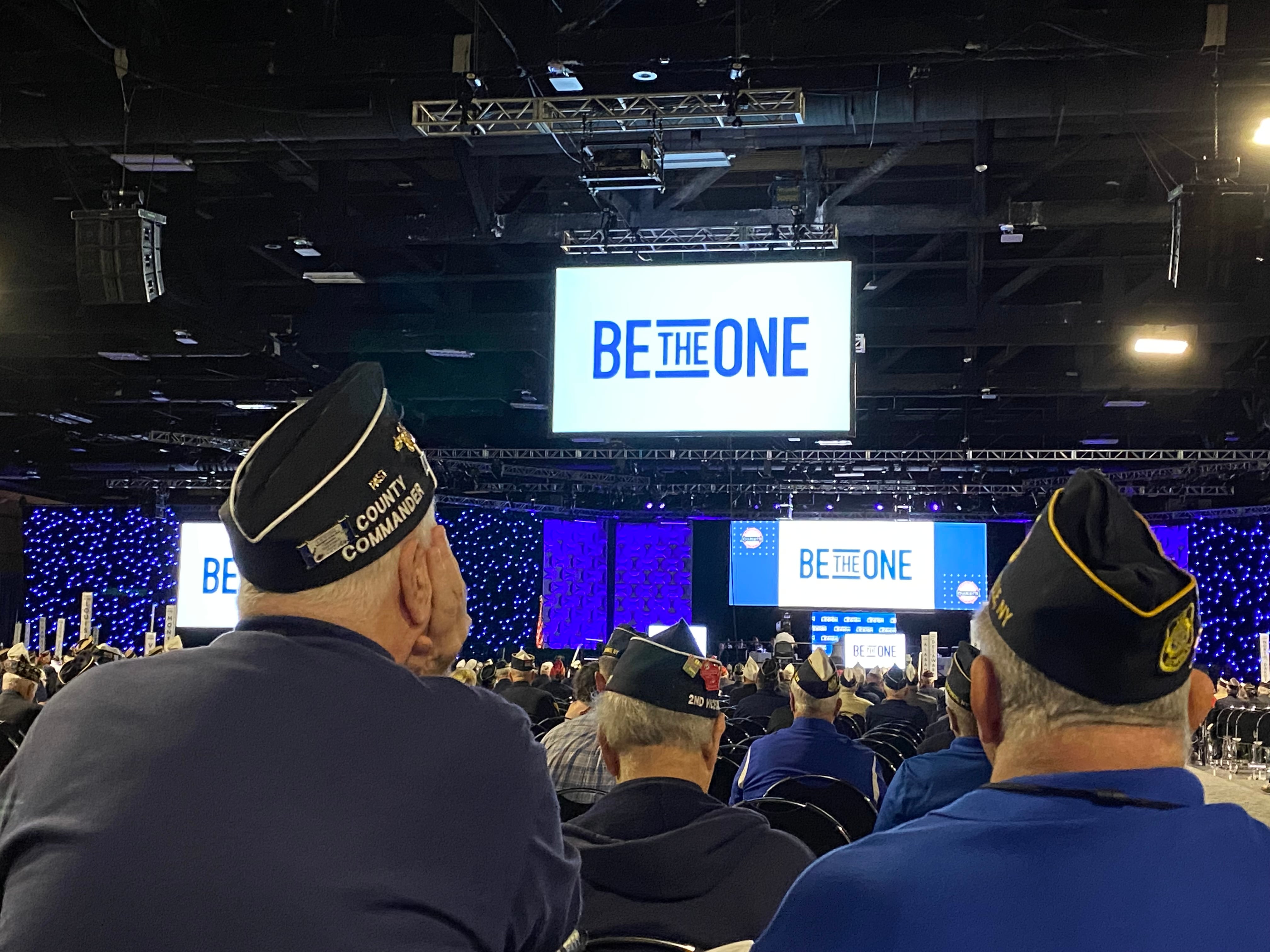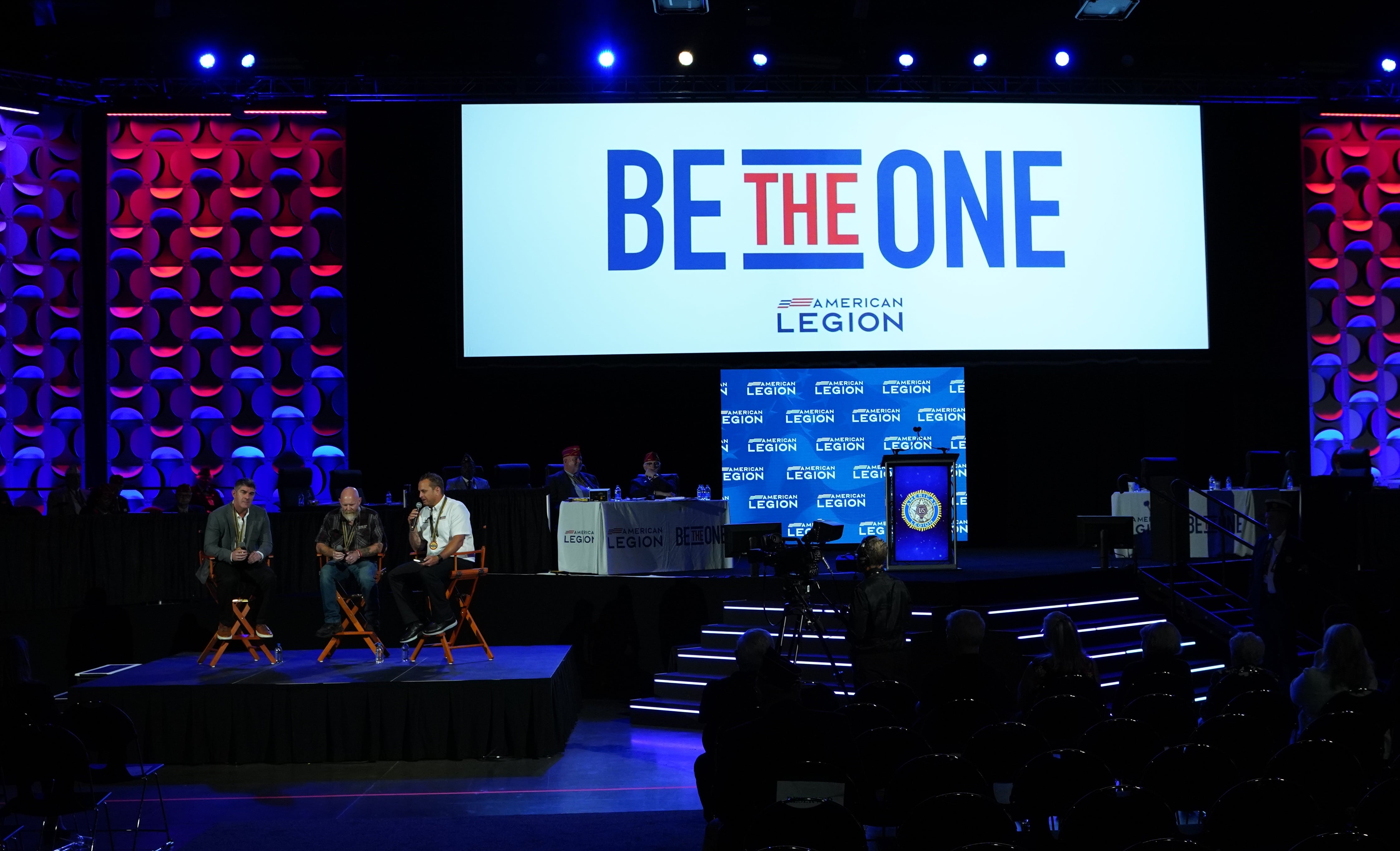CHARLOTTE, N.C. — Navy veteran Mark Tangey said he is only alive today because he had friends who wouldn’t stop texting him.
“If I didn’t have those messages and phone numbers to call, I wouldn’t be here today,” Tangey told the assembled crowd at the American Legion’s annual convention in North Carolina on Wednesday. “I didn’t have any other kind of outlet to get anything done. But the connection I had with those guys, that pulled me through.”
Tangey’s remarks — delivered on stage with the two fellow veterans he credits with saving his life — are part of the organization’s ongoing “Be The One” initiative, which challenges Legion members and all Americans to connect with struggling veterans to help prevent suicide.
The campaign started two years ago but has gained significant momentum over the last 12 months, thanks in large part to a high-profile sponsorship with Chip Ganassi Racing on the IndyCar circuit.
RELATED

This week, American Legion officials held their first symposium on the topic with medical experts, veterans advocates and community leaders to further emphasize the need for widespread action to reduce veteran suicide. They’ve also partnered with other veterans groups to spread the message even further to the military community and public at large.
“We need to create action behind this,” said David Berkenfield, a team manager at Chip Ganassi Racing and one of the friends who served alongside Tangey. “As members of the Legion, we’re in every state. We’re in every county. We’re in every little town. We can make a difference.”
According to the latest data from the Department of Veterans Affairs, about 17 veterans a day die from suicide. That figure is down slightly over the last few years, but still represents more than 6,000 veterans lost annually to self-inflicted wounds.
A report in the Journal of the American Medical Association released this week found that the suicide rate among young veterans rose dramatically from 2006 to 2020. Deaths among veterans with traumatic brain injury were about three times higher than the rest of the American public.
Despite years of public emphasis on the issue, Legion officials said they still hear from veterans reluctant to discuss their personal difficulties because of the stigma surrounding mental health challenges, and family members who wished they could have seen warning signs before they lost a loved one.
“The pain those families feel will always be there,” said American Legion National Commander Vincent “Jim” Troiola in an address to the crowd on Tuesday. “They want us to continue to make this our top priority.”
Panels at the conference were designed to combat that, with discussions on potential therapies, signs of post-traumatic stress and ideas for outreach. Legion officials plan to share those findings in a series of podcasts starting next month.

Tangey’s remarks were designed to put an immediate, human face on the topic for the several thousand Legion members in town for the conference. He discussed his struggles with transitioning from the military to civilian life, which led to a series of motorcycle accidents, which compounded his brain injury problems.
“In the Navy, Mark was the glue that kept young guys together,” said Sean Dowling, another veteran. “He kept the morale up … When we saw him going down, we knew this was too good of a guy to let go.”
On a particularly bad day in early 2022, after struggling with a host of physical and mental health issues, Tangey texted his friends to tell them that “death is better than this.” His friends immediately responded.
“My older brother committed suicide and I miss him every fucking day,” Berkenfield wrote. “His son misses him. That void will never heal.”
Berkenfield and Dowling told the crowd that they wished they had more resources and experience at the time to calm Tangey, but said they knew enough to stay in contact with their friend until they were sure he was in a safe space. Tangey said they still provide regular support to him.
“My head doesn’t want to trust anybody. It would constantly mess with me, and it still does,” Tangey said. “But I just have to focus on the fact that I know my family loves me, and I know these guys love me, and that’s all that matters.”
More information on the American Legion’s Be the One campaign is available at the group’s website.
Veterans in need of emergency counseling can reach the Veterans Crisis Line by dialing 988 and selecting option 1 after connecting to reach a VA staffer. In addition, veterans, troops or their family members can also text 838255 for help, or visit VeteransCrisisLine.net for assistance.
Leo covers Congress, Veterans Affairs and the White House for Military Times. He has covered Washington, D.C. since 2004, focusing on military personnel and veterans policies. His work has earned numerous honors, including a 2009 Polk award, a 2010 National Headliner Award, the IAVA Leadership in Journalism award and the VFW News Media award.




